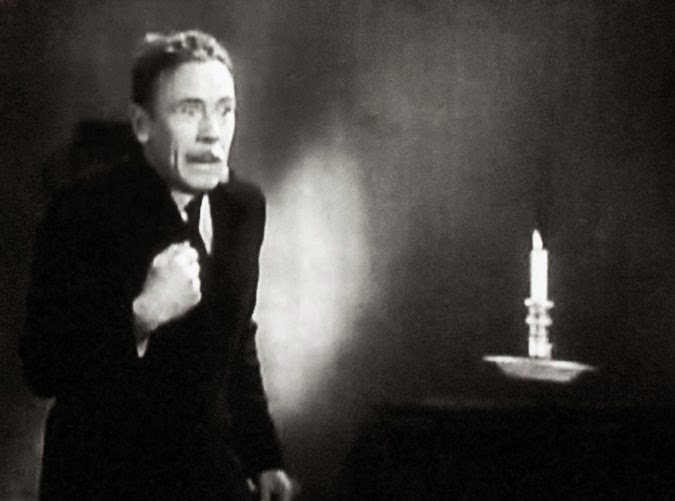 In between making frothy musicals for Ernst Lubitsch and becoming a cinema legend in a series of operettas with Nelson Eddy, Jeanette MacDonald made this romantic musical, not quite an operetta (though it's about the writing and production of one) and definitely not quite on the level of a Lubitsch picture in terms of wit or visuals. Still, this may be of interest to some as one of the last of the pre-Code musicals. Ramon Novarro is a poor composer living in Brussels, barely scraping together a living playing piano at sidewalk cafés while he works on an operetta. He meets MacDonald when he jumps into her cab; they argue and tussle but he is clearly smitten (nowdays, he'd be considered on the verge of being a stalker), and is pleased to discover that she is staying at a pension next to his, the same place where a group of his musician buddies live. His mentor (Jean Hersholt) gets him a meeting with a famous impresario (Frank Morgan), but he loses his music to the cab driver to whom he owes money. It turns out that the stand-offish MacDonald is also a composer, and soon the two are writing together—and co-habiting as well. A song she writes becomes popular and they move to Paris, but as they say, more money, more problems; soon Novarro goes back to Brussels to get his operetta produced with a famous singer (Vivienne Segal) with her husband providing backing, and when MacDonald stays behind, Morgan moves in on her. The operetta production falls apart when the singer and her husband leave, so at the last minute, only McDonald can step in and save the day—will she?
In between making frothy musicals for Ernst Lubitsch and becoming a cinema legend in a series of operettas with Nelson Eddy, Jeanette MacDonald made this romantic musical, not quite an operetta (though it's about the writing and production of one) and definitely not quite on the level of a Lubitsch picture in terms of wit or visuals. Still, this may be of interest to some as one of the last of the pre-Code musicals. Ramon Novarro is a poor composer living in Brussels, barely scraping together a living playing piano at sidewalk cafés while he works on an operetta. He meets MacDonald when he jumps into her cab; they argue and tussle but he is clearly smitten (nowdays, he'd be considered on the verge of being a stalker), and is pleased to discover that she is staying at a pension next to his, the same place where a group of his musician buddies live. His mentor (Jean Hersholt) gets him a meeting with a famous impresario (Frank Morgan), but he loses his music to the cab driver to whom he owes money. It turns out that the stand-offish MacDonald is also a composer, and soon the two are writing together—and co-habiting as well. A song she writes becomes popular and they move to Paris, but as they say, more money, more problems; soon Novarro goes back to Brussels to get his operetta produced with a famous singer (Vivienne Segal) with her husband providing backing, and when MacDonald stays behind, Morgan moves in on her. The operetta production falls apart when the singer and her husband leave, so at the last minute, only McDonald can step in and save the day—will she? This is mild fun, though long stretches of it are surprisingly melodramatic (just like an operetta!), and as much as I generally like Novarro, I didn't like his character here—his awkward badgering of MacDonald goes on far too long, and when she finally gives in, it feels unmotivated; it's like a poorly done Astaire/Rogers set-up. MacDonald is less imperious than she was later with Eddy, and Charles Butterworth provides some worthy comic relief. It's strange to see Morgan playing a bit against type as a conniving bad guy—he's not really a villain but he's the only person in the story whom we're rooting against. The song that Novarro and MacDonald collaborate on, "The Night Was Made for Love," is repeated in various versions throughout the first half of the movie until you are sick of it. There’s a cute scene of MacDonald singing "Try to Forget" in a freight elevator. The finale, with MacDonald and Navarro singing together on stage, is in color. The primary pre-Code aspect of the film is that the two are shown living together out of wedlock. [Warner Archive Instant]







































